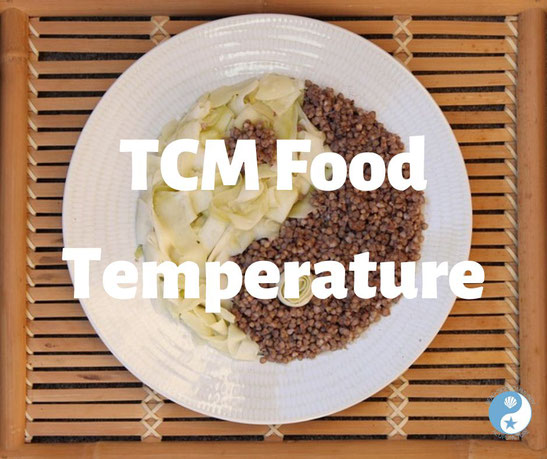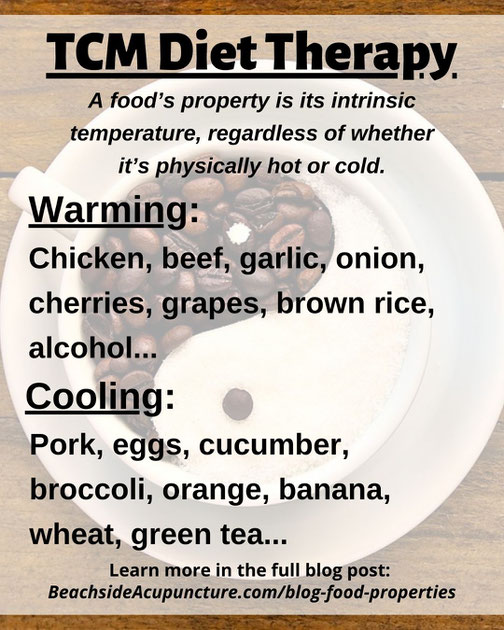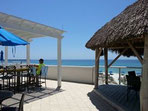
This post contains affiliate links, meaning Beachside Community Acupuncture PLLC may receive a small commission for purchases made through certain links at no additional cost to you. (In other words, you support us in a small way when you buy the products that we highly recommend and would use ourselves!) Click here to view our full disclosure policy.
When most people think of nutrition, visions of nutrient daily values and calorie counts come into their heads. However, when Traditional Chinese Medicine (TCM) was started thousands of years ago, information about the molecules that make up food wasn't available. Chinese diet therapy instead focused on the energetics of food, categorizing food with the same methodology as herbal medicine. One such category - the one that's the easiest to understand - is that of "property" or inherent temperature.
Intrinsic Vs. Extrinsic Temperature
While food can be physically hot or cold - e.g. after being placed in an oven or a refrigerator - it also has an inherent temperature that won't be affected by its physical one. If this sounds confusing, consider the following two examples:
- A man takes a ghost pepper from the refrigerator. Because the pepper feels cold to the touch, he would expect it to cool him off. As soon as he bites into it, though, his face turns bright red, he breaks into a sweat, and has a very strong urge for water.
- A woman has a picnic on a hot summer's day. She takes a slice of watermelon that has been sitting out in the sun, finding it warm to the touch. When she bites into it, though, she feels refreshed, hydrated, and even a bit cooler.
In these scenarios, the ghost pepper is intrinsically warming and the watermelon is intrinsically cooling, even if their physical temperatures are the opposite.
Using Chinese Diet Therapy for Health
TCM is all about common sense and logic. If you tend toward Cold, you'll more than likely feel the best eating warming foods and avoiding cooling foods. If you tend toward Heat, then you'll probably need the opposite. Keep in mind that Heat and Cold conditions can present as more than just day-to-day temperature and are often tied to root imbalances in Yin and Yang.
Sometimes knowing if a food (or beverage) is intrinsically warming or heating is common sense, like in the examples above. For others, though, it can be more subtle. If you're not sure, run an online search for "[food] property in TCM" or "[food] temperature in Chinese medicine" to double check. (Read through a few entries to make sure the information lines up!)
Here are a few commonly consumed examples:
- Warming: Chicken, beef, garlic, onion, cherries, grapes, brown rice, alcohol
- Cooling: Pork, eggs, cucumber, broccoli, orange, banana, wheat, green tea
If you really want to dive into Chinese diet therapy with more definitive explanations and recipes, we recommend these books:

Next Steps
If you're not sure where you stand in this hot-cold spectrum, your Licensed Acupuncturist can give you a better idea based on your symptoms and physical findings like tongue diagnosis. (In most cases, a red tongue indicates Heat and a pale tongue indicates Cold).
If you truly are evenly balanced, then we recommend eating with the seasons as nature provides exactly what we need when we need it, for instance by giving us cooling fruits like citrus in the summer. Otherwise, follow the general recommendations given in our Diet Therapy Starter Sheet - sign up for our newsletter to get it sent to you for free - and eat organic as much as possible to give yourself the best nutritional foundation. Your body will thank you!
This post was originally published in January of 2019 and was updated in August of 2025.

Kathleen Ketola is a Licensed Acupuncturist and the owner of Beachside Community Acupuncture. She loves providing affordable acupuncture to the residents of McKinney, Texas, and surrounding cities like Prosper, Frisco, and Melissa, but she also enjoys educating the general public on how acupuncture and Traditional Chinese Medicine (TCM) can treat everything from pain to infertility to stress and beyond. Book online or contact her at (214) 417-2260 if you'd like to schedule an appointment.









